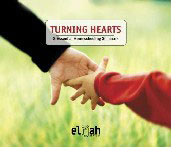Home School Burnout, part 2
Read past issues of the
e-journal HERE>>
Sign up below to have the e-journals sent directly to your inbox.
by Ellyn Davis
(Part 1 of Home School Burnout was in our last ejournal. If you missed it, you can read it HERE>> Part 3 will be in the next issue.)
Simple measures to avoid burn-out, continued
In the last issue of the ejournal we discussed that one of the measures we can take to combat burnout is to identify our "energy vampires." These are the people, activities, and beliefs that literally "suck" the energy and enthusiasm out of us. So far we identified the energy vampires of People and Activities. Here are some more "energy vampires" to become aware of.
Lifestyle as an Energy Vampire
A recent article in U.S. News and World Report focused on sleep-deprivation in America. Because of our fast-paced lifestyles, very few Americans ever know the clarity of thought and level of energy that comes with being fully rested. Not only do adults suffer from lack of sleep, but now children are at risk for sleep deprivation, because their lives have become as demanding as their parents’. In his book Margin, Richard Swenson says that to most Americans sleep is not what they do to rest, sleep is what they do because they are exhausted.
Although this seems elementary, the amount of rest you get and the kind of food you eat can have a dramatic effect on your ability to cope with life’s demands. Some questions you might ask yourself are: What makes me happy? What energizes me? What makes me feel productive? What comforts and renews me when I feel worn out and used up? What am I passionate about?
You can make major lifestyle changes that refresh you, or you can make minor changes by building what The 80/20 Principle calls “happiness islands” into your day. For example, I am a person who needs solitude in order to recharge and reconnect with what is important to me. Yet for years I lived in a four room house with three active boys and five or six employees coming in and out of an upstairs office all day. It was a radical invasion of my privacy, and some days I thought I would lose my mind.
I had to force myself to find reflective time, to create “happiness islands” for myself. Sometimes these “happiness islands” were as simple as taking a walk by myself, or shutting myself in my bedroom with a good book. Sometimes they had to be more extreme, like flying to Dallas to participate in a horse-judging seminar, or taking the boys to the beach for a few days by ourselves. In the process, I found out which colors, smells, sights, and activities renew me.
Beliefs as Energy Vampires
Think about it. Here we are, absolute amateurs, sitting around our kitchen tables, using our own children as guinea pigs and clinging to a belief that we can somehow give them a better education than an American institution that has multi-million dollar facilities and a professional staff, and that spends an average of $5,500 a year on each child. The only tools we have at our disposal are our own willingness to give it a try and assorted teaching materials modeled after those used in the public schools.
So we are surrounded with constant questions—questions from our relatives, our friends, members of our church—that undermine our convictions. Even worse, we have to battle questions from own minds like “Can I really pull this off? Do I know what I’m doing? Am I doing too much or too little? Am I using the right teaching material? Am I simply wasting time? Am I going to warp my children and make them total misfits?”
No wonder we struggle with burnout!
Obviously, these questions can become “energy vampires” that erode our sense of confidence about what we are trying to accomplish. We need to surround ourselves with confidence builders that reinforce our convictions, like books by John Gatto that let us know all is not as great as it may seem in the public schools. Or books by Raymond Moore that tell us that warm, loving, family life overcomes any deficiencies there may be in our teaching materials and methods. Or books by Edith Schaeffer that make us realize our homes have the power to mold lives in eternal ways.
There are three major “energy vampire” beliefs I have noticed as I’ve talked with home schooling families across the nation. You can probably spot more self-defeating beliefs in your own life, but here are three I have noticed:
1. The belief in scarcity.
This is the belief in “not enough”—not enough time, energy, money, opportunities, resources, and so on. When we hold a belief in scarcity, we limit ourselves. We tend to not step outside of our own “boxes,” because we feel we must hoard what little we have and we feel that no matter how much we try, our efforts won’t be “enough.” We are always afraid we are going to “run out” of time, energy, money, opportunities, etc., etc.
When we choose to believe in scarcity, we not only limit ourselves, but we insult God—the God Who is Enough, and Who, in fact, promises to give to us exceeding abundantly, pressed down, and running over. We also lock ourselves into anxiety over finances and time pressure, and into regret and grief over wasted time, energy, and money.
One of the reasons our family has tried to keep Hudson Taylor’s biography in print is that he was a man with a firm conviction that God would always “be enough,” and his response to every extremity was, “Now we have an opportunity to see what God can do!”
2. The belief in difficulty.
The word “bummer” has become firmly entrenched in the American vocabulary. It is reflective of a widely held belief that life is a hassle, a battle, an uphill climb, a constant proof of Murphy’s Law (“everything that can go wrong will”). Yes, it is true, we live in a fallen world, but that doesn’t mean we have to approach everything with a “What’s the use?” attitude.
What happened to Jesus' teaching that his burden is easy and his yoke is light? Sometimes I think Christians have so bought into a "warfare" mentality about life here on earth that they forget that Jesus has already won the war and we are "more than conquerers." Our lives shouldn't be the "vale of constant sorrow" sung about in old hymns, but exciting adventures.
When it comes to lowering the level of difficulty in my life, one of the most important lessons I ever learned was about the power of repetition. I used to never make up my bed, because I would hit the floor running each morning and never slow down until I fell into bed again at night. The unmade bed always bothered me, but it seemed like an insurmountable task to tackle first thing in the morning.
A friend happened to mention that if you do something for six months, it becomes a habit and it no longer requires any extra emotional or physical energy. Silly as it may sound, I thought, “Maybe I can try making up my bed for six months.” Well, that was twenty five years ago, and I don’t even think about making up the bed anymore. I just do it when I get up. Since that time, I have used the power of repetition to eliminate the draining effect of certain tasks that I dislike. I’ve found out that social scientists call this “unconscious competence.”
All tasks, particularly tasks that require overcoming a certain amount of inner resistance, have a “competency” curve where once you reach a level of mastery, no further mental, emotional or physical effort is required. We see this all the time when we teach a child to read. For months it seems like we are getting nowhere, but all of a sudden our child reads effortlessly.
Speaking of the word “bummer,” did you know that you can change how you feel about life by simply changing the words you use? If you find your everyday conversation filled with words like “exhausted,” “rushed,” “overloaded,” “stressed,” “frustrated,” “disappointed,” and so on, you may want to make a conscious effort to change the words you use.
Find positive (or even humorous) words to replace your “bummer” words. For example, you can say, “I am achieving warp speed” instead of saying “I’m rushed” or “I’m at critical mass” instead of “I’m overwhelmed.” Not only will changing your words make you think about the labels you put on your life, but it will make those around you start listening to you again. Your family has probably tuned you out because they’ve heard you say the same negative things over and over.
3. The belief in failure.
Robert Kiyosaki says the most damaging beliefs the public school system teaches are (1) that mistakes are bad and (2) that there is only one right way to do something. These beliefs create a fear of failure, a fear of making mistakes, that thwart true learning. Kiyosaki further says that most true learning comes from making mistakes, from falling down and trying again like you do when you learn to walk or learn to ride a bicycle. So failure always has something to teach us, and often teaches us more than success does. Kiyosaki says there are no failures, only “outcomes” and he calls mistakes “outcomes with attached emotions.”
What if we really believed God works everything for our good and even redeems our mistakes? That would dispel a lot of our fear and anxiety.
4. The belief that it will always be this way.
One of my mother’s favorite phrases is “This too, will pass.” It is her way of acknowledging the inevitability of change. Sure, right now you are up to your elbows in baby doody, your house is a wreck, and there is no way you will have supper on the table in time. No wonder you feel stressed and harbor thoughts of sending the kids to military school! But believe me, there will be a day when you would give anything to have a peanut-butter and jelly smudged four-year-old son crawl onto your lap and ask you to read Mike Mulligan and His Steam Shovel for the four hundredth time.
These days with your children will pass you by in an instant. All of my children are now well beyond the diapers and peanut-butter stage and what I miss most are the snuggles, the little hands reaching up to me, the plaintive cries for “just one more story,” the proud calls of “Mama, come quick and see what I did!”
How could I ever have thought it was a hardship to read Mike Mulligan? I would gladly trade all of the clean houses in the world for more of those stressful years when my children were small and every day held a thousand new wonders for them to discover.
Beliefs have a powerful impact on how we perceive life. Next time you are frustrated, anxious, or depressed, ask yourself, “What would I have to believe to feel this way?” Recognizing the false beliefs you allow yourself to hold about people and situations, and then consciously trying to align those beliefs with God’s truth, will dramatically change the way you approach life. For example, if you believe your children are “rug rats,” you will relate to them totally differently than if you believe they are “blessings from God.”
In The Safest Place on Earth, Larry Crabb says:
"We simply do not believe in a God who is so intrinsically good that His commitment to be fully Himself is equivalent to a commitment to be very good to us. When He tells us that He is out for His own glory, and will glorify Himself by making known who He is, we can relax. It’s something like a wealthy, generous father declaring his intention to display his true character. We know we’re in for a bundle. That is, if we’re his heirs."
Part 3 is coming next! You'll learn about "More Measures to Combat Burnout," "Sin and Unbelief as Causes for Burnout," and much more. Stay tuned....
Next week....Home School Burnout, part 3.

Juice Plus
 I want to spotlight a product I've found that has made a real difference in my health. It's called Juice Plus+ and it is an easy, affordable way to make sure you and your children get all the fruits and vegetables they need. I want to spotlight a product I've found that has made a real difference in my health. It's called Juice Plus+ and it is an easy, affordable way to make sure you and your children get all the fruits and vegetables they need.
Juice Plus+ even has a children's health program that lets you get the capsules free for children between the ages of six and fifteen. Plus, there is a family plan to make Juice Plus+ even more affordable.
Another bonus is that Juice Plus+ makes a great home business that Moms can run to make money while they're home schooling.
So, check it out by going HERE>>

Be sure to sign up for our ejournal!
Sign up below.
CLICK HERE FOR THE PRODUCTS WE CURRENTLY OFFER
Webpages about the importance of reading great books and booklists for children of all ages
Webpages about choosing teaching materials
Webpages about charting a course through high school
|

 I want to spotlight a product I've found that has made a real difference in my health. It's called
I want to spotlight a product I've found that has made a real difference in my health. It's called 




